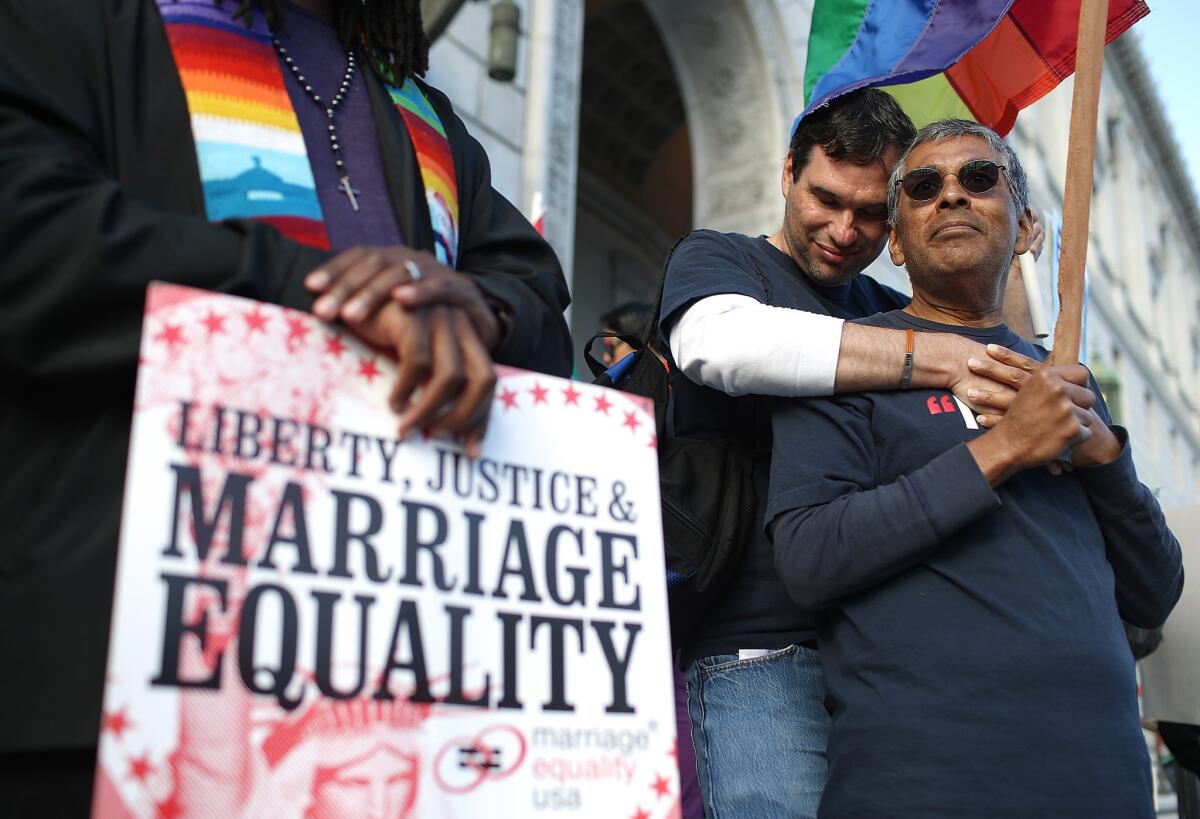California, late to the gay marriage altar

California finds itself in an unaccustomed place these days: behind the curve. Another state, Rhode Island, and two more countries, France and New Zealand, were just added to the steadily growing list of places where same-sex marriage will receive full recognition and status.
The roster now encompasses 14 nations and 10 states — as soon as the Rhode Island legislation is signed — as well as Washington, D.C. Missing from it is California.
How could California, with its frontier live-and-let-live sensibility and a reputation for social progressiveness that verges on downright weirdness, have ended up in this situation?
TIMELINE: Gay marriage chronology
In fairness, it’s in part because the state was once close to the forefront of the nation’s gay marriage movement. After the California Supreme Court ruled in 2008 in favor of gay marriage, Proposition 8 became a national rallying point for religious conservatives determined to fight social acceptance of such unions. The Mormon Church and its members, in particular, poured money and volunteer time into the campaign for Proposition 8, which restored the state’s ban on gay marriage by embedding it in the state Constitution.
But the reaction against the church was swift, vehement and at times vitriolic. Since then, the church and its members have backed away from active involvement in ballot measures concerning same-sex marriage. The change was clear when Maine voters reconsidered the issue in 2012, after having passed a Proposition 8-type ban. As Reuters recently summed it up, “More than 800 Utahns gave $2.7 million to support Prop 8 in 2008, state campaign finance records show. In 2012, a total of 16 Utahns gave $1,264 to the Maine ballot committees against gay marriage.”
The federal trial challenging Proposition 8 also promoted public understanding of same-sex marriage, in part because the defenders of the ban were unable to explain how such unions would harm the institution of traditional marriage. One of the key witnesses against gay marriage, David Blankenhorn, later changed his position. The states that have legalized same-sex marriage since then benefited from years of debate over Proposition 8.
PHOTOS: Battle of the gay marriage signs
In the next few months, the U.S. Supreme Court may overturn Proposition 8 and the wrong done to gay and lesbian couples by California voters. If not, it’s likely that Californians will overturn it in a future vote. But for now, California is a laggard in the most important civil rights movement of our time. The state may have contributed to the increasing recognition of same-sex marriage, but it has regrettably not partaken in it.
More to Read
A cure for the common opinion
Get thought-provoking perspectives with our weekly newsletter.
You may occasionally receive promotional content from the Los Angeles Times.










